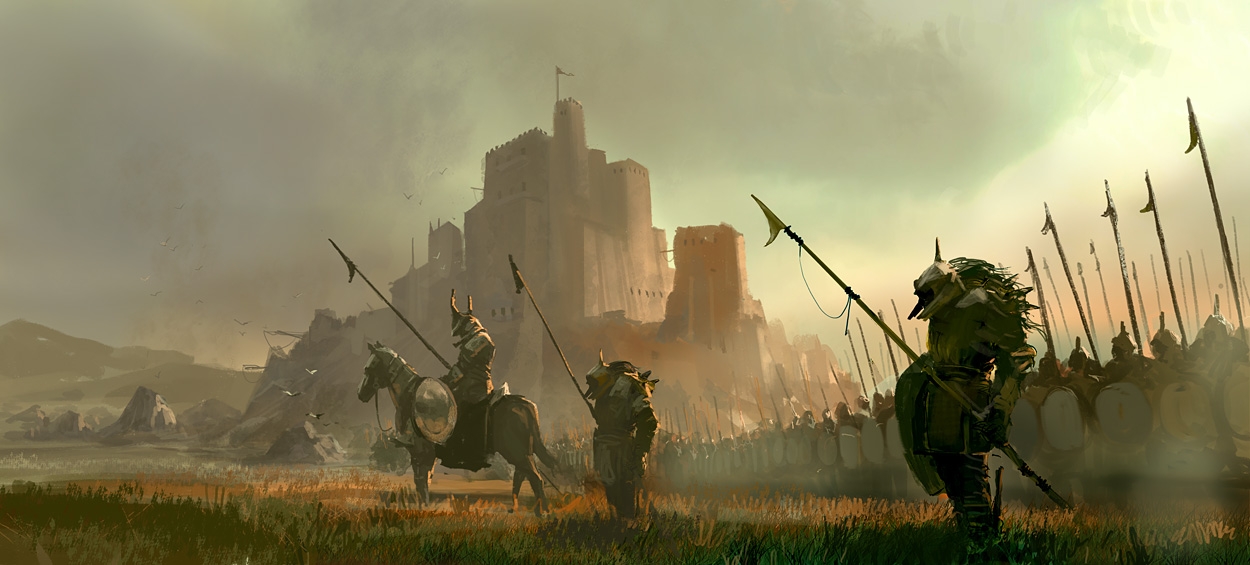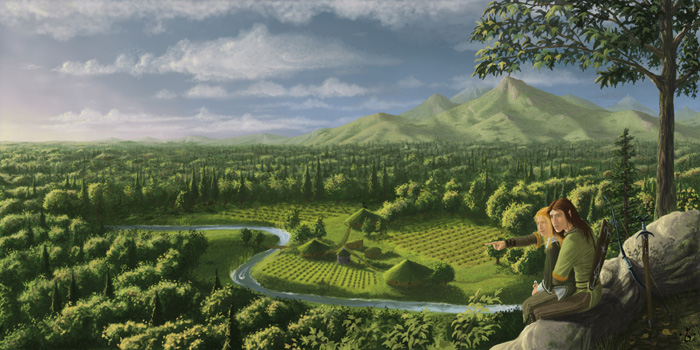Difference between revisions of "Timeline"
(Pushed from realm.) |
|||
| (3 intermediate revisions by the same user not shown) | |||
| Line 1: | Line 1: | ||
| − | Before the First Age, there was Godstime, a time now lost to [[Legends|legend]]. | + | Before the First Age, there was [[Godstime]], a time now lost to [[Legends|legend]]. |
== The First Age == | == The First Age == | ||
| Line 88: | Line 88: | ||
|- | |- | ||
|245 TA | |245 TA | ||
| − | |[[Dutchy of Markinghamshire# | + | |[[Dutchy of Markinghamshire#Invasion_of_the_Zealots|Invasion of the Zealots ''(Markinghamshire)'']] |
|- | |- | ||
|344-352 TA | |344-352 TA | ||
| Line 123: | Line 123: | ||
|[[First War of the Reaches|First War of the Reaches]] | |[[First War of the Reaches|First War of the Reaches]] | ||
|- | |- | ||
| − | |899- | + | |899-907 TA |
|[[Second War of the Reaches|Second War of the Reaches]] | |[[Second War of the Reaches|Second War of the Reaches]] | ||
|- | |- | ||
Latest revision as of 16:53, 1 August 2017
Before the First Age, there was Godstime, a time now lost to legend.
The First Age
Scholars have, by convention more than by actual proof, agreed that the First Age lasted for approximately fourteen hundred years. It began with an ancient account of the return of Melandrea, the Sun, from a absence of generations. The great ice that covered the land began to recede, and the water and sunlight brought forth plants and animals that had remained dormant through the darkness. The elves, dwarves and humans came out of their hibernation.
The Elven Histories of Kurak tell of such a rebirth. Warm summers and mild winters blessed the land for more than a score of years.
By dwarven tradition, Moradin marked the first sunset of the First Age on the stone archway of the gates to his underground hall deep in the Frostbrand Mountains. It is by a counting of those marks that the number of years of the First Age are known.
The most ancient of texts describe the civilization of man during the First Age beginning along the gentle shores and coastal rivers of what is now known as Rembia, commonly referred to as the Old Kingdom. While it is clear that the elder races of elves and dwarves were established long before this time, evidence is sparse of ancient human civilizations in the early First Age. That humankind first assembled in large numbers along these coasts is not inconceivable. Rich resources, vast plains filled with an abundance of game and plant life, numerous fresh-water rivers and streams, and a mild climate all contributed to the prosperity of Rembia. In those early days of the First Age, the great forest and its elven keepers provided protection in the west and south while the mountains to the north were home to the solitary, yet peaceful dwarves. In the east, the gentle Sapphire Sea protected the fertile lands from the ravages of the harsh Great Sea, creating a natural cradle for humanity.
Thus shielded, humankind flourished in rudimentary villages and towns where before only isolated families lived in the caves that dot the western shoreline of the Sapphire Sea. The earliest days were spent hunting, gathering food and water, and erecting crude stone huts along the rivers of the area. However, within the first two centuries of the First Age, the domestication of animals and the first vestiges of agricultural farming were seen. This was quickly followed by the creation of a commerce and transportation network that, by the end of the third century of the First Age, stretched along almost the entire edge of the Sapphire Sea.
The great elven forest in those days came within a fifty miles of the seashore, and the expansion of the human civilization was limited in the west and south by the boundaries of that forest and its guardian elves. So, Rembia grew to the north and pushed into the fertile temperate lands between the Sapphire Sea and the Frostbrand Mountains. While fishing was a staple for the people of Rembia, the abundance of resources close to home limited the development of deep sea going vessels and exploration of other lands.
|
The Second Age
By convention, the Second Age lasted for approximately twelve hundred years beginning with the Great Plague of 1353 FA.
In Rembia, the Second Age began with the rebuilding of the Old Kingdom. The plague had killed hundreds of thousands, and it was thought that line of heirs to the throne of the Overlord were lost as well. But a claimant from a mountain monastery far to the north emerged. Tracing a lineage back seventy generations, discrepancies and small leaps of faith were discarded as the people heralded the arrival of Overlord Osulf. Perhaps because of his mystical upbringing and perhaps because of the devastation of the Great Plague, the Second Age began as the time of religion. Osulf and his people worshiped many gods including a pantheon of local deities.
Within a hundred years, trading routes with the rest of the Realm had been re-established. Advances in farming produced bountiful harvests with increasing regularity. In the cities, music and the arts returned, craftsmen created wondrous items of beauty and power, and the magical arts flourished. While the edges of the Old Kingdom were still at the mercy of the local kings and lords, the core of the civilization had been rebuilt.
In the Reaches, a similar phenomenon was occurring. Religions formed the base of the new economy of Teufeldorf. Many great temples were built, a few of which are still standing today. Their vaults and crypts honeycombed the streets below Teufeldorf. Priests and priestesses flooded the city from the far-flung ports - some promising immortality, others dark powers and dominion over others. Whatever the promise, the citizenry embraced the new religious fervor.
After the fears of the Great Plague began to subside, commerce and trade began to become increasingly important. Barbarians from Korgsland braved traveling through orc-infested territory to peddle their prized furs at the bazaars of the city. Tang ships would arrive laden with exotic spices, cloth and fruit. They would depart filled with hearty grain, wood and cattle. Merchants became so powerful that, by the end of the third century, their influence rivaled those of the priests and priestesses. Teufeldorf had become a city that embraced all religions and welcomed trade with all kingdoms.
|
The Third Age
The accounting of time for the Third Age began with the arrival of Heaven's Fire. After several score years of wintry darkness, the sun finally reappeared. Again, the races began to emerge from their burrows and hiding places. The forests found new life, and the plains saw regrowth. However, many of the civilizations of the Second Age were gone.
In Rembia, the search began anew for a royal descendant - and finding a bloodline that was pure after almost three thousand years took belief in the divine. And yet, the Old Kingdom returned. A new Overlord was crowned, Maximillan I, and the Celestial City began to rebuild from the rubble of its former glory. Rembia was never to regain its prominence, however. The Feudal Lords to the south garnered favorable trade status with the Tang Empire. The elves fought hard to keep the forests from being plundered for the wealth that was needed to rebuild Rembia. Belief in the Overlord remained strong along the shores of the Sapphire Sea, but elsewhere new lords and leaders were beginning to take hold.
It was not until the mid-second century TA that Teufeldorf was again fully repopulated. Men fleeing from the now numerous orcs (it seems as if the years of darkness and disease had only helped to increase the number of orcs) stumbled upon the remains of Teufeldorf. With its strong defensive position, the men held on, and soon Teufeldorf became a refuge for the oppressed. It wouldn't be until the end of the Orcish Wars in 403 TA that Teufeldorf would reclaim its former glory and begin exploring and expansion into the Shadowyarn Mountains and the Eastern Reaches beyond.
|


